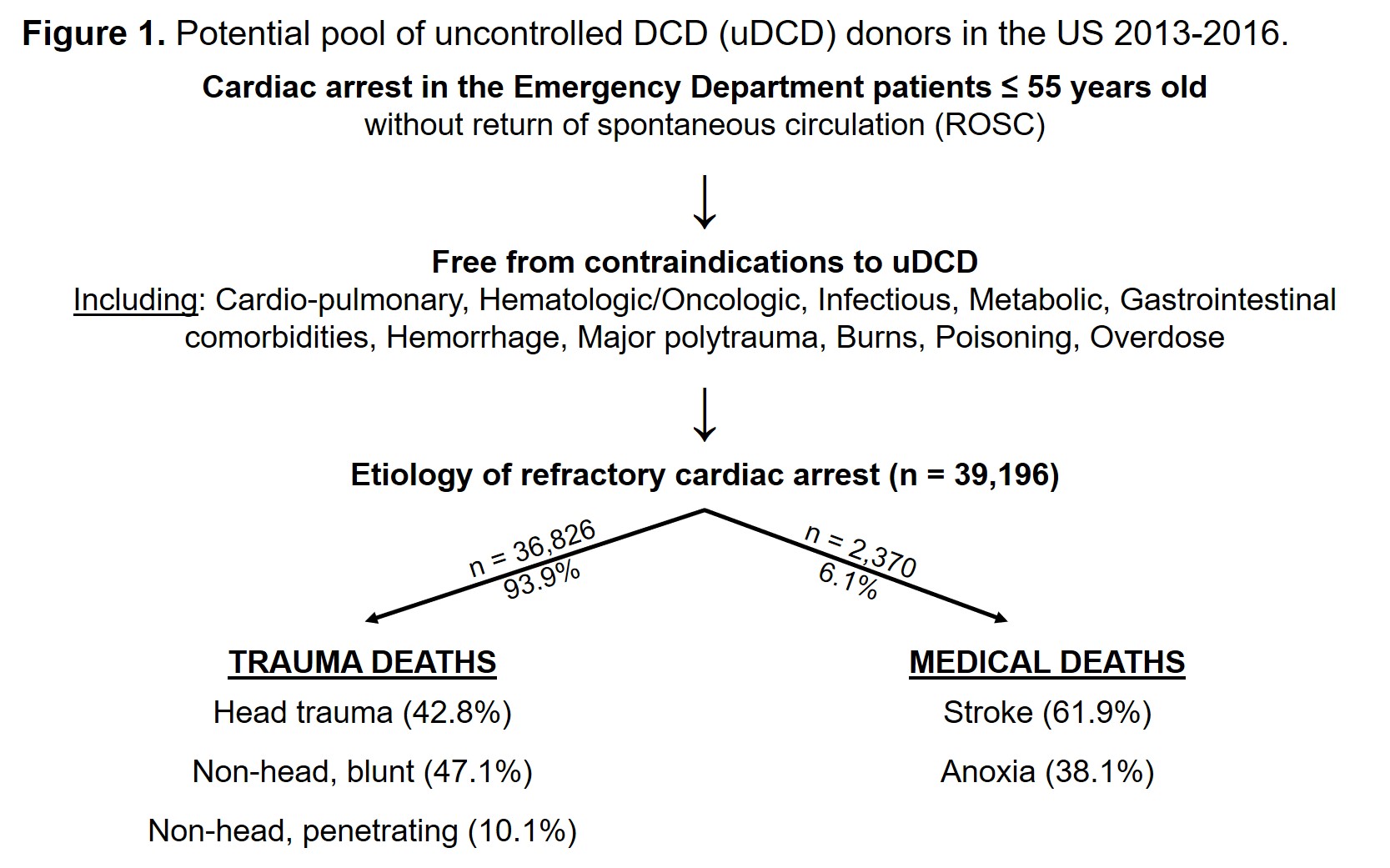Estimating the Potential Pool of Uncontrolled DCD Donors in the United States
Johns Hopkins, Baltimore, MD
Meeting: 2020 American Transplant Congress
Abstract number: C-254
Keywords: Allocation, Cadaveric organs, Donation, Donors, non-heart-beating
Session Information
Session Name: Poster Session C: Non-Organ Specific: Public Policy & Allocation
Session Type: Poster Session
Date: Saturday, May 30, 2020
Session Time: 3:15pm-4:00pm
 Presentation Time: 3:30pm-4:00pm
Presentation Time: 3:30pm-4:00pm
Location: Virtual
*Purpose: In contrast to donation after brain death (DBD), donation after circulatory death (DCD) involves recovery of organs from people with devastating neurologic injury who do not meet brain death criteria. Typically, DCD is controlled (cDCD). However, uncontrolled DCD (uDCD) involves the procurement of organs from people who suffer an unexpected, witnessed, refractory cardiac arrest. uDCD organs have expanded the donor pool in Europe; however, they are used sparingly in the US. It is unknown how many potential uDCD donors exist in the US.
*Methods: We evaluated data from the Nationwide Emergency Department Sample (NEDS) between 2013 and 2016. Using Clinical Classification Software coding algorithms, we identified patients who suffered refractory cardiac arrest in the ED and were free of contraindications to uDCD.
*Results: Between 2013 and 2016, there were on average 9,798 (range: 9,097-10,931) potential uDCD donors identified per year free from contraindications to uDCD donation (Figure 1). 93.9% of deaths were traumatic. The major cause of trauma deaths was head injuries (42.8%). The major mechanisms of death were motor vehicle crashes (36.8%) and firearms (28.9%). The major cause of medical deaths was stroke (62.0%). Potential donors were young (average age: 31) and male (79.4%).
*Conclusions: We estimate there are approximately 10,000 potential uDCD donors per year, which, if utilized, could double the deceased donor pool. These potential donors were young and otherwise healthy. The procurement of uDCD organs in the US should be strongly considered as a means to mitigate the organ shortage.
To cite this abstract in AMA style:
Boyarsky BJ, Jackson KR, Kernodle AB, Sakran JV, Wang JMGaronzik, Ottmann SE, Segev DL. Estimating the Potential Pool of Uncontrolled DCD Donors in the United States [abstract]. Am J Transplant. 2020; 20 (suppl 3). https://atcmeetingabstracts.com/abstract/estimating-the-potential-pool-of-uncontrolled-dcd-donors-in-the-united-states/. Accessed February 17, 2026.« Back to 2020 American Transplant Congress

